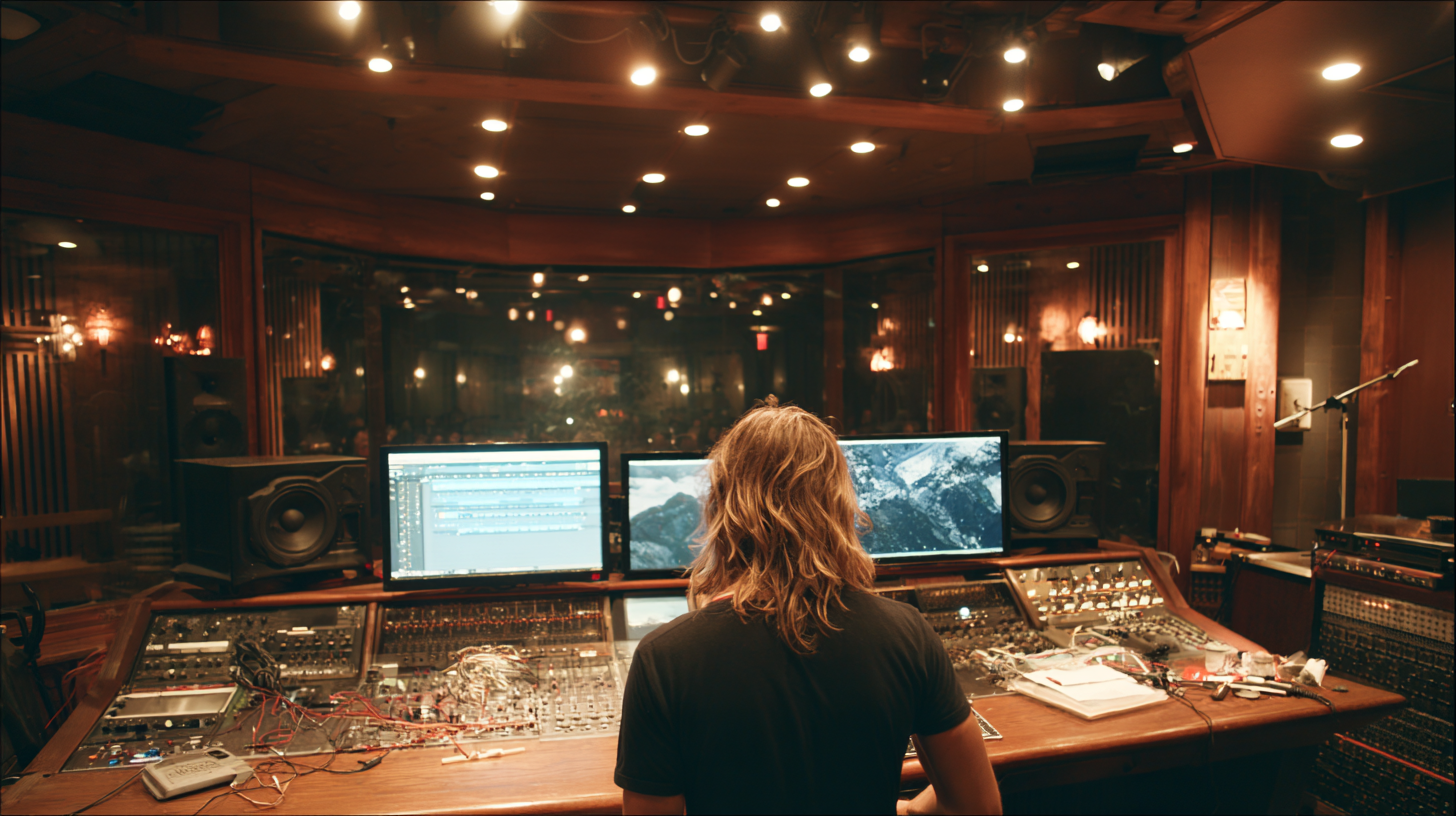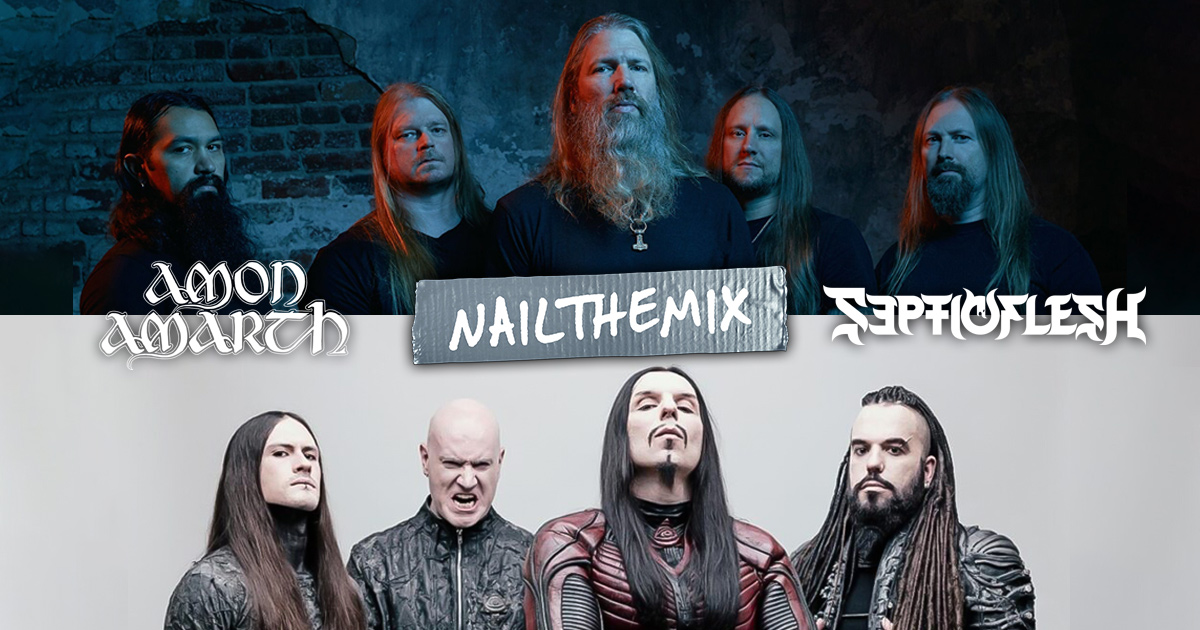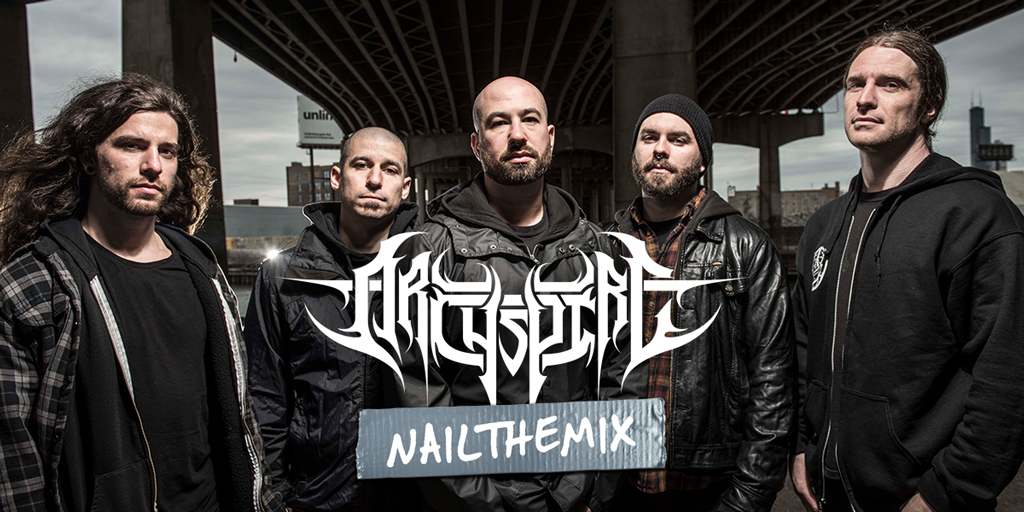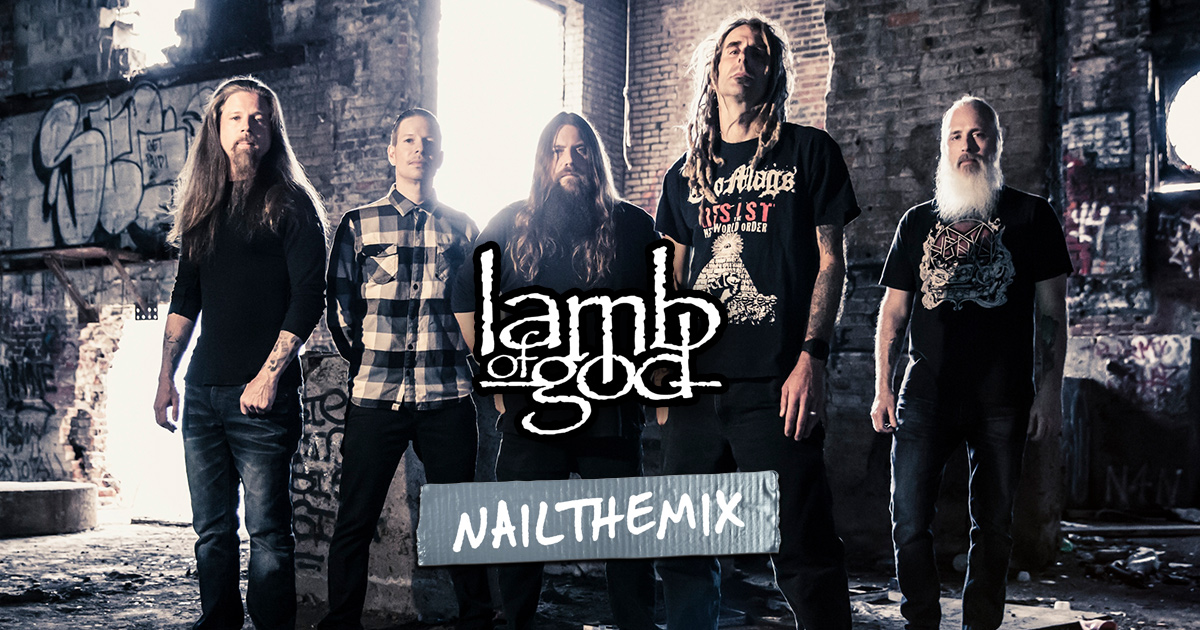
Logic Music Software: is it right for metal?
Nail The Mix Staff
Alright, let's talk DAWs. Specifically, let's talk Logic Pro – Apple's heavyweight contender in the music production ring. You see it everywhere, from bedroom producers to chart-topping artists. But when it comes to the brutal, precise, and often chaotic world of metal production, is Logic music software up to the task? Can it really deliver those crushing tones and razor-sharp edits we crave? Or are there hidden traps that’ll leave your mixes sounding… well, less than monumental?
Does Your DAW Choice Really Matter for Metal?
First off, the big question: does it even matter which Digital Audio Workstation you pledge allegiance to? The short answer is kinda yes, kinda no. Look, any modern DAW – Logic, Pro Tools, Cubase, Reaper, you name it – is a beast. You can technically forge face-melting metal in pretty much any of them. They're all loaded with enough firepower to get the job done.
However (and this is a big "however" for us metalheads), each DAW has its own personality, its own strengths, and its own glaring weaknesses. These nuances can seriously impact your workflow, especially when you're dealing with high track counts, intricate editing, and the quest for ultimate sonic aggression.
Switching DAWs once you're deep in the trenches? It’s like trying to change a guitar string mid-solo – possible, but a massive pain in the ass. So, if you're starting out or thinking of making a move, do yourself a favor: demo a few. Don't just grab what your buddy uses. See what clicks, what frustrates you, and then commit. You'll thank yourself later.
Logic Music Software: The Metal Producer's Rundown
So, where does Logic Pro fit into the metal landscape? It’s a popular choice, no doubt, especially if you're already rocking a Mac. But let's dissect this beast.
Logic's Strengths for Metal Mayhem
Logic brings a lot to the table, and for good reason:
- Bang for Your Buck: It's a one-time purchase, and for what you get, it's incredibly well-priced. No endless subscription fees bleeding your wallet dry when you need to buy that next killer amp sim.
- Killer Stock Plugins: Seriously, Logic comes loaded. The Channel EQ is a workhorse for surgical carving and broad strokes. The Compressor offers multiple classic emulations (VCA, FET, Opto) that sound fantastic on drums, vocals, and even your mix bus. Space Designer is a versatile convolution reverb perfect for adding depth to snares or creating epic vocal ambiences. And let's not forget Alchemy, a ridiculously deep synth for those atmospheric intros or industrial layers.
- Songwriting & Composition Beast: This is where Logic truly shines. Flex Time and Flex Pitch are incredibly intuitive for tweaking audio timing and pitch. The Drummer track is a surprisingly powerful tool for quickly sketching out ideas or even creating solid base drum parts with Drum Kit Designer. MIDI editing is comprehensive and user-friendly, great for programming those intricate symphonic metal arrangements or brutal synth lines.
- Overall Capability: It handles digital audio and MIDI with general competence, making it a decent all-rounder for many tasks.
The Bottlenecks: Logic's Limitations for Metal
Now, for the not-so-shiny parts, especially for us metal folks:
- Mac-Only Lockdown: This is the big one. If you're on Windows, Logic isn't even an option. Collaborating with Windows-based bandmates or producers? Get ready for a world of stem bouncing and potential headaches. This exclusivity can be a major workflow killer.
- The Editing Enigma: Here's where many metal producers hit a wall with Logic. When you're dealing with 16 tracks of blast beats that need to be tighter than a [insert appropriate tight thing here], or quad-tracked rhythm guitars that need to align perfectly for maximum impact, Logic’s audio editing workflow can feel… clunky.
- Yes, Flex Time is there, and it's useful for basic nudging. But for the kind of surgical, sample-accurate, phase-coherent drum editing that modern metal often demands (think aligning every kick, snare, and tom hit across multiple mics), it’s just not as fluid or powerful as dedicated tools in other DAWs.
- Many metal producers find themselves frustrated trying to achieve the same level of precision and speed they could in, say, Pro Tools with Beat Detective or even Reaper with its highly customizable editing environment. Some producers even track and mix in Logic but export drums to Pro Tools just for editing, then re-import. That's a serious workflow detour.
How Logic Stacks Up: A Metal-Focused DAW Comparison
To really understand Logic's place, let's see how it squares up against other popular DAWs in the metal arena:
The Industry Titan: Pro Tools
Ah, Pro Tools. The studio behemoth.
- Pros: It’s the closest thing to an industry standard, especially in big US studios. If you’re recording live bands, its audio recording and editing capabilities are top-notch. Beat Detective is legendary for a reason when it comes to drum editing. Plugin support is generally excellent (AAX format).
- Cons (for some): Not the friendliest for MIDI or loop-based composition. It was born from analog console workflows, and that DNA still shows. If you're programming intricate MIDI sequences or heavily relying on VIs, it can feel like you're fighting it. And then there’s the cost – often subscription-based with tiered features.
- Logic vs. Pro Tools for Metal: If heavy audio editing (especially drums) is your main gig, Pro Tools has the edge. If songwriting, MIDI, and a more integrated creative environment are key (and you're on a Mac), Logic offers a compelling package, especially for the price.
The All-Rounder: Cubase
Steinberg's Cubase has been around forever (Atari ST, anyone?) and is a massive force, especially in Europe.
- Pros: It's a true all-rounder. Excellent for digital audio, fantastic with MIDI and loops. VST (which Steinberg invented!) support is obviously native and robust. It's a solid, reliable choice that can handle pretty much anything you throw at it, metal included.
- Cons: Can have a steeper learning curve for some. Different tiers can be confusing.
- Logic vs. Cubase for Metal: Cubase offers a powerful, cross-platform alternative that offers a more refined audio editing experience than Logic for complex metal. If you're on Windows or need that deeper editing power without going full Pro Tools, Cubase is a strong contender.
The Creative Flow: Ableton Live
Known more in electronic circles, but some rock/metal folks dig it.
- Pros: Unmatched for MIDI, loops, and creative sample manipulation. The Session View is brilliant for jamming and arranging on the fly. Warping audio is incredibly intuitive. Drum Rack is a sample-mangling dream.
- Cons: Traditional linear recording and heavy audio editing aren't its forte. If you're tracking a full band with tons of mics, it can feel less optimized than Pro Tools, Cubase, or even Logic. We've only had one NTM producer (the Real Friends session) use Ableton, for what it's worth.
- Logic vs. Ableton for Metal: Logic is generally better for traditional band recording and mixing. If your metal incorporates a lot of electronic elements, intricate sound design, or live performance triggers, Ableton’s strengths are undeniable.
The Beat Maker's Choice: FL Studio
Originally FruityLoops, FL Studio is massively popular.
- Pros: Super easy to get started with, especially for beats and electronic music. Soulja Boy made "Crank That" on a cracked copy – that tells you something about its accessibility.
- Cons: Like Ableton, it's not really built for heavy-duty multi-track audio recording and editing. You could technically make a metal song in it, but it'd be like trying to race a monster truck in a go-kart derby. Possible, but why would you?
- Logic vs. FL Studio for Metal: For serious metal production, Logic is miles ahead due to its audio handling. FL Studio is for a different game.
The Underdog Powerhouse: Reaper
Reaper has been gaining serious traction in rock and metal.
- Pros: Insanely powerful digital audio capabilities – anything Pro Tools or Cubase can do, Reaper can probably do too, often with more customization. It's lightweight, affordable, and has a very generous full-featured trial. The community is super active, and it supports heavy scripting and automation.
- Cons: The UI can be a bit utilitarian out-of-the-box (though highly customizable). It’s not as prevalent in commercial studios.
- Logic vs. Reaper for Metal: For pure audio editing grunt and customization on a budget (and cross-platform), Reaper is a beast and arguably surpasses Logic for intricate metal editing tasks. If you're on a Mac and value Logic's ecosystem and stock plugins, Logic still holds appeal. Many metal producers are flocking to Reaper for its raw power and flexibility.
The Modern Contenders: Studio One & Bitwig Studio
These newer DAWs are well-designed and very capable.
- Pros: Modern interfaces, often learning from the "mistakes" of older DAWs, less "technical debt." They can definitely get any job done.
- Cons: Smaller user bases mean potentially less community support and more difficulty collaborating unless everyone's on the same platform. You might be the only one in your circle using them.
- Logic vs. Studio One/Bitwig for Metal: If you're starting fresh and one of these clicks with you, go for it! But Logic has a larger, more established community (especially on Mac) and a vast library of tutorials and resources.
Key Considerations When Picking Your Metal DAW (Logic Included)
Pricing & Tiers: What's the Damage?
- Logic Pro: Beautifully simple. One price, all features.
- Pro Tools & Cubase: Often have multiple tiers (Intro, Artist, Pro, etc.) with different track limits, plugin bundles, and features. Make sure the tier you pick actually has what you need. Don’t pay for stuff you won’t use, but don’t cripple yourself by cheaping out either.
- Subscription vs. One-Time: Logic is a one-time buy. Pro Tools is heavily subscription-focused. Cubase and others offer both. Decide what model works for your bank account.
Plugin Support: VST, AU, AAX – Does it Matter for Metal?
For us metalheads, plugins are lifeblood – amp sims like those from Neural DSP, drum samplers like Toontrack Superior Drummer 3, surgical EQs like FabFilter Pro-Q 3, and character compressors like an SSL G-Master Buss Compressor emulation.
- Logic uses Audio Units (AU), Apple's native format. Most major plugin developers (Waves, FabFilter, Plugin Alliance, Universal Audio) provide AU versions, so you're generally covered for the big guns.
- VST is the most common format, especially on Windows. Cubase, Reaper, Ableton, FL Studio, Studio One all support VSTs.
- AAX is Pro Tools' exclusive format.
- The Catch for Logic Users: Some smaller developers or freeware gems (especially older ones, or niche tools like specific free impulse response loaders) might only be available as Windows VSTs. If you rely heavily on that freeware ecosystem, being AU-only on a Mac can sometimes be limiting.
- When you're deep into crafting your tone, having the right EQ is crucial. For more on how to wield this powerful tool, check out some advanced EQ strategies for mixing modern metal.
- And let's not forget compression – the glue and punch of any heavy mix. If you want to dive deeper into taming dynamics, our metal compression secrets guide is a goldmine.
Making Metal in Logic: Tips & Tricks
Beefing Up Your Drum Editing Workflow
While it might not be Beat Detective, you can still tighten things up:
- Flex Time (Quantize Audio): For less complex parts or broad timing adjustments, select your grouped drum tracks, enable Flex Time (try Slicing or Rhythmic mode), and quantize to your grid. It can get you pretty far.
- Manual Slicing & Nudging: For more precision, manually slice audio at transients (use
Cmd+Tat the playhead or Marquee tool selections) and nudge regions. Laborious, but possible. - Strip Silence / Remove Silence: Use this (Edit > Remove Silence from Audio Regions) as a quick way to gate toms or tighten up cymbal tails. Adjust thresholds and pre/post-roll times carefully.
- Track Stacks & Groups: Keep your multi-miked drums in a Summing Stack and ensure your edit groups are active for phase-coherent editing across all mics.

100+ Insanely Detailed Mixing Tutorials
We leave absolutely nothing out, showing you every single step
Dialing in Aggressive Guitars
- Logic's Amp Designer & Pedalboard: Don't sleep on these! Amp Designer has some decent high-gain models. Stack it with Pedalboard's stompboxes (like a Tube Screamer style pedal for tightening). Experiment!
- Third-Party IRs: Elevate Amp Designer by pairing it with quality Celestion impulse responses or others, loaded into Space Designer (yes, it can load IRs!) or a dedicated IR loader plugin like NadIR (free) or York Audio offerings.
- Channel EQ for Fizz Control: That nasty high-end fizz on distorted guitars? Use Logic's Channel EQ with a narrow Q to find and notch out those offending frequencies (often 5kHz-10kHz+). This is key for a polished, professional metal guitar tone.
- Bussing & Layering: Send your multiple guitar tracks to a bus for cohesive EQ and compression. Consider parallel compression for extra beef.
Leveraging Logic's Strengths for Songwriting
- Drummer Track: Use it to quickly mock up song structures or experiment with different grooves before committing to programming or recording live drums.
- MIDI Power: For symphonic metal, industrial, or djent passages with complex synth layers or programmed drums (if you're using something like Superior Drummer 3 triggered by MIDI), Logic’s robust MIDI editing is your friend.
- Arrangement Tools: Use Arrangement Markers to map out your song sections, and Folder Stacks to keep complex sessions organized.
So, Can Logic Music Software REALLY Handle Metal?
The verdict? Yes, absolutely. Logic Pro is a perfectly capable DAW for producing professional-sounding metal, from songwriting and recording to mixing and even mastering. Its stock plugins are fantastic, its workflow for composition is excellent, and its price point is attractive.
The main caveat remains its audio editing workflow for super-demanding, intricate tasks, particularly with drums. If your productions live and die by sample-accurate, Beat Detective-style editing, you might find Logic a bit more laborious than Pro Tools or Reaper in that specific department. And, of course, it's Mac-only.
But plenty of killer metal albums have been made with Logic. Many Nail The Mix members use it successfully. At the end of the day, the skill of the engineer, the quality of the source recordings, and the strength of the song far outweigh the minute differences between top-tier DAWs.
Don't get bogged down in endless online debates about which DAW is "best." Pick one that feels good for your workflow, learn it inside out, and then focus on making killer music.
And if you want to see exactly how seasoned pros wrangle monstrous metal mixes out of any DAW – be it Logic, Pro Tools, Cubase, or Reaper – and learn the techniques that truly make a difference, that's where Nail The Mix comes in. Every month, you get the actual multi-tracks from a massive metal song and watch the original producer mix it from scratch, explaining every plugin choice, every EQ tweak, every fader move. It's like having a backstage pass to the minds of the best in the business.
Ready to see how it's really done? Unlock Your Sound and Start Mixing Modern Metal Beyond Presets with Nail The Mix.
Get a new set of multi-tracks every month from a world-class artist, a livestream with the producer who mixed it, 100+ tutorials, our exclusive plugins and more
Get Started for $1




